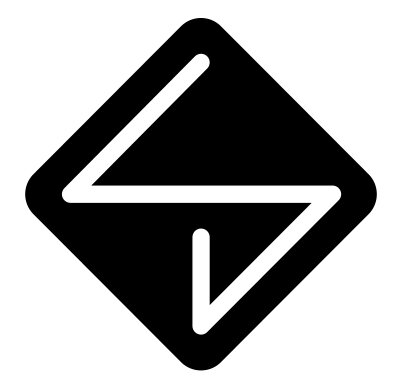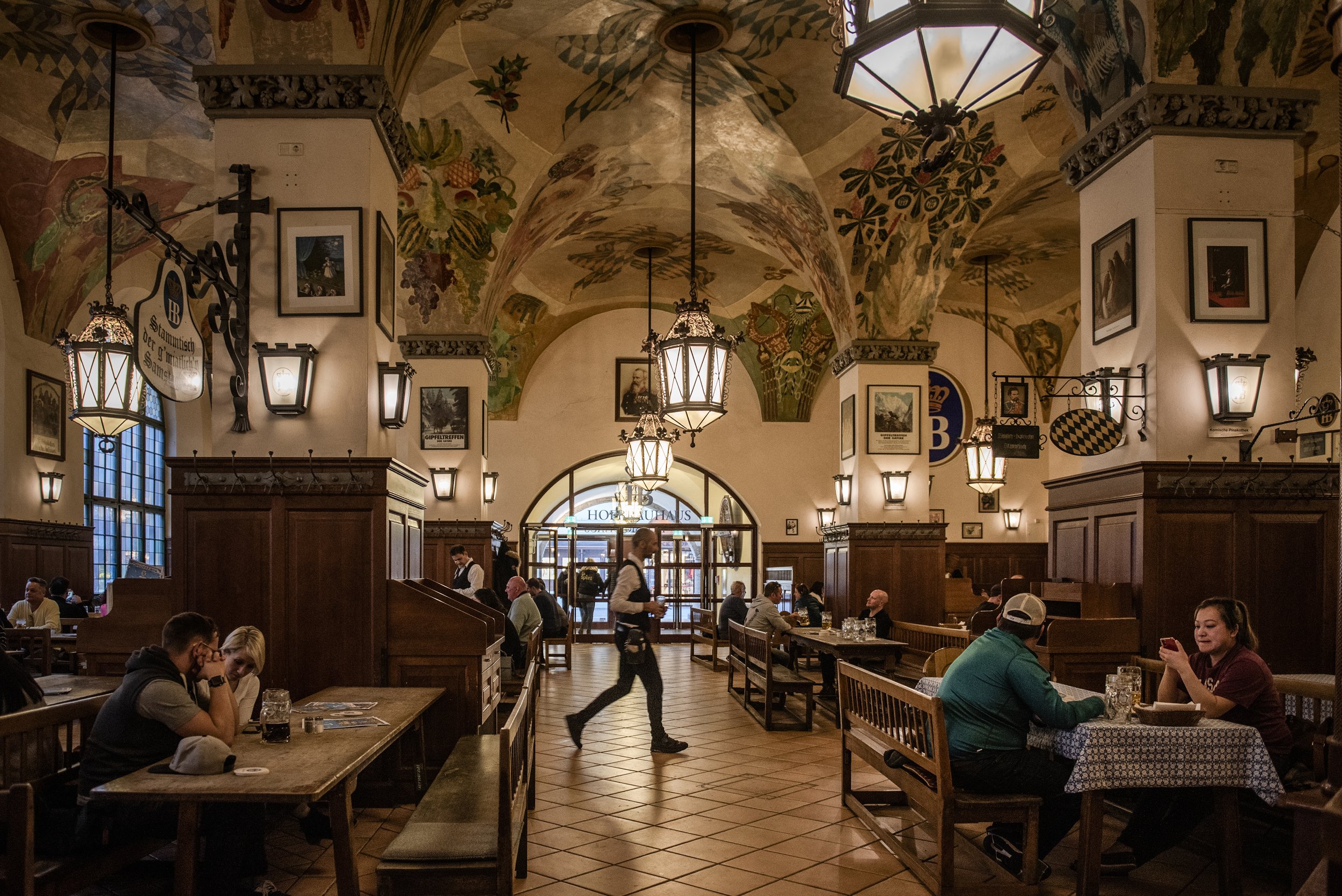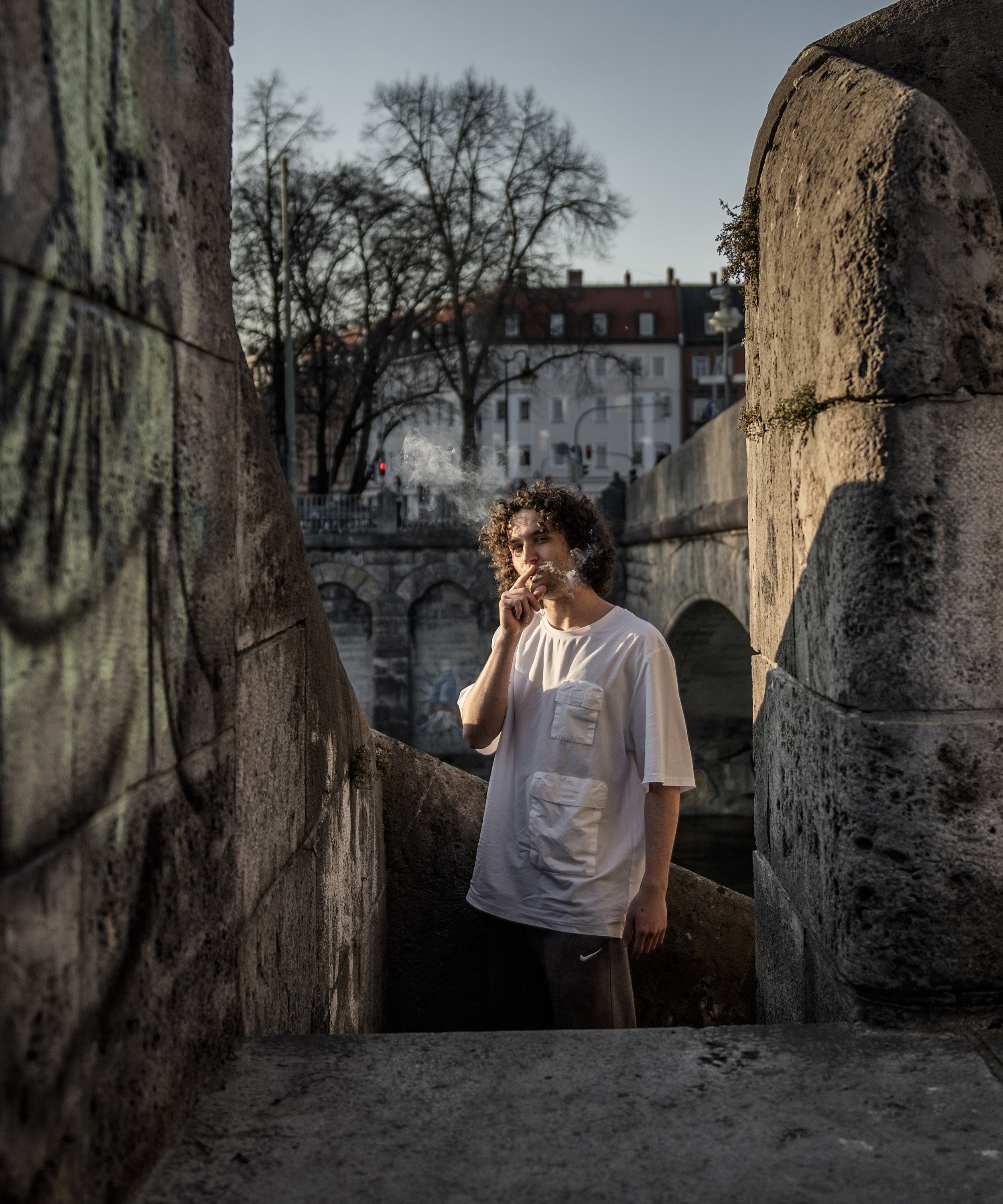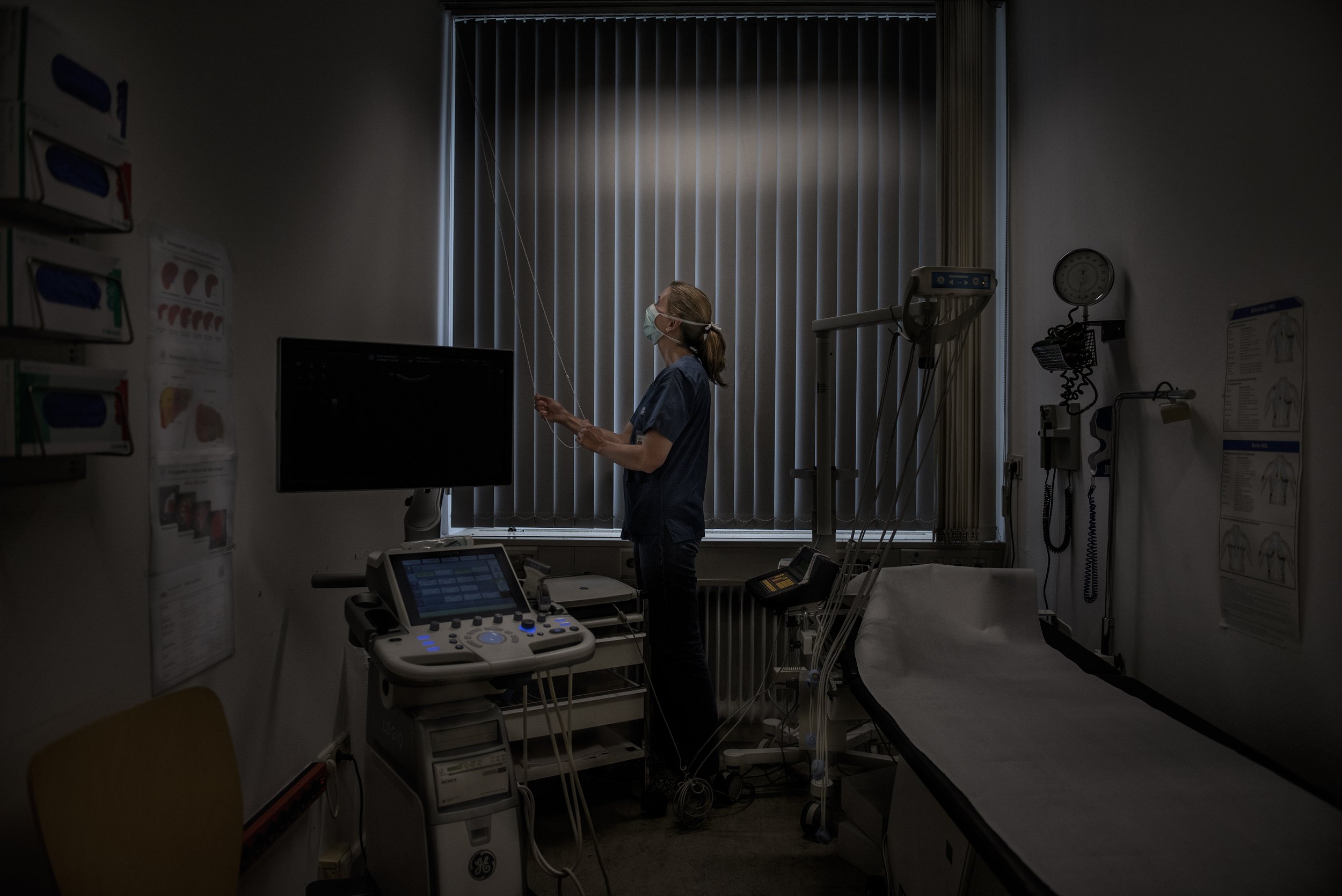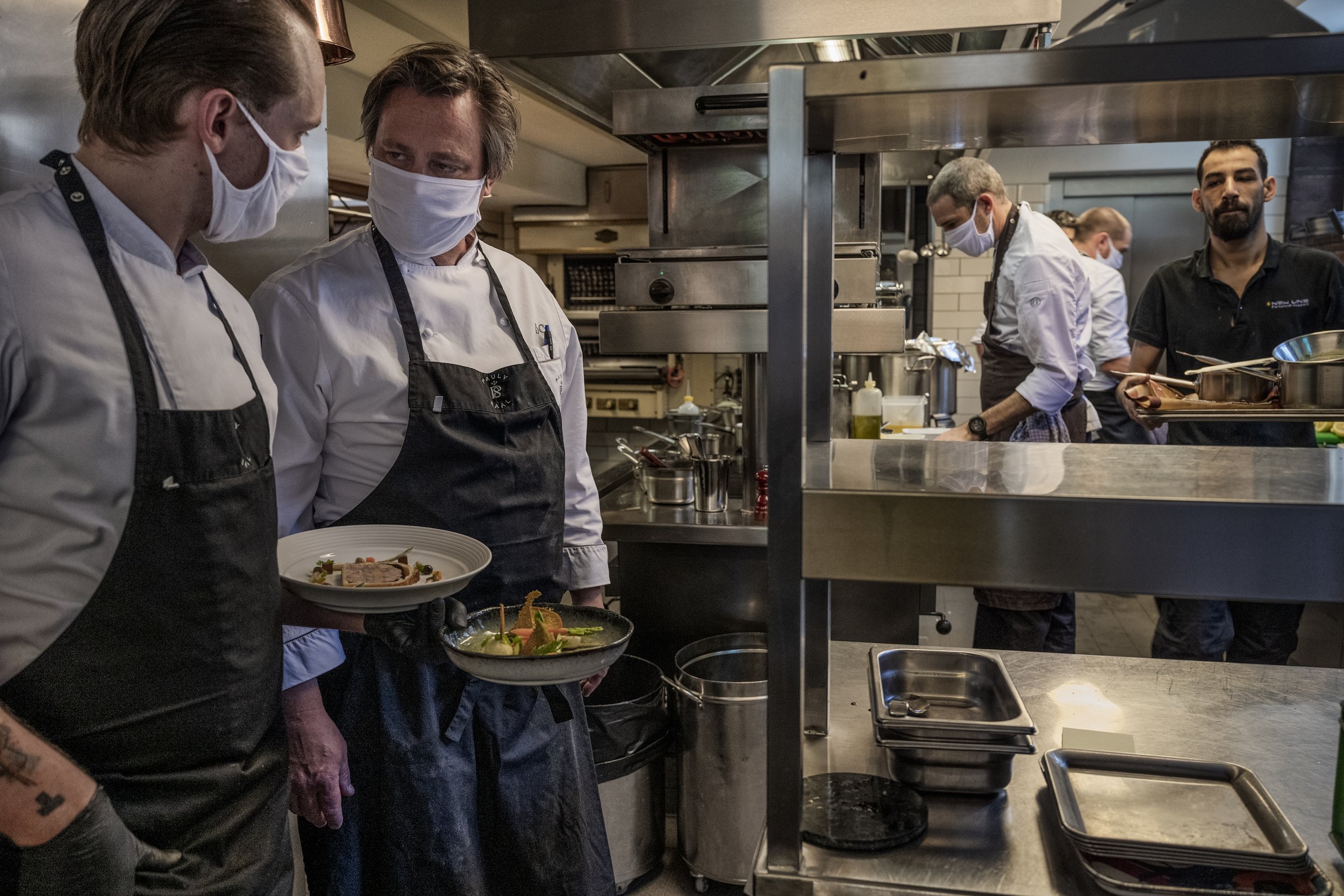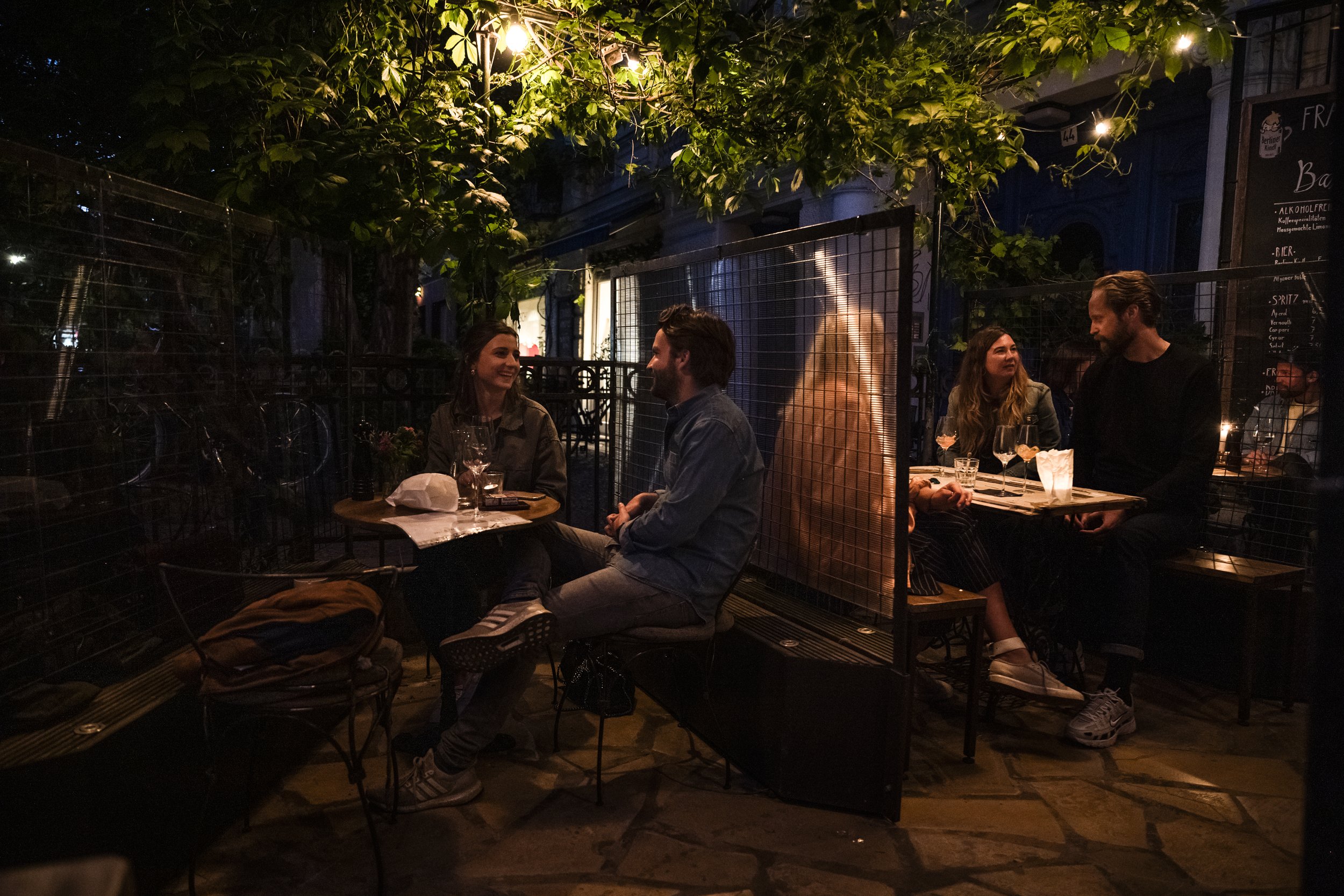UPHEAVAL OF A WORLD
At the dawn of 2020, the world opened its eyes to a global catastrophe: the immediate peril to humanity was not nuclear, but sanitary. With lightning speed, the health crisis has launched a spiral of crises that have become entangled. This polycrisis or megacrisis extends from the exis- tential to the political through the economic, from the individual to the planetary through families, regions, states. In short, a tiny virus in an unknown city in China has triggered the turmoil of a world.

18TH MARCH 2020
No confinement but a social. distancing.
“My fellow compatriots, the coronavirus is changing life in our country in. a dramatic way. Our concept. of normality, of social. life, of relationships between. people, all of this is being challenged as it never has been. Not since German reunification, no, not since World War II has there been a challenge for our country where our joint solidarity has been so crucial.”
Angela Merkel
Police are monitoring the area and advising people to keep a safe distance from each other.
The measures taken in Germany are not yet as strict as in France; neither confinement nor curfew; Germans are called to stay at home, to give up their vacations (in Germany or abroad), restaurants are ordered to close at 6 pm.
On March 22, 2020, Angela Merkel announced a nationwide ban on gatherings of more than two people in public spaces, with a minimum distance of 1.5 meters, and the closure of restaurants, cafes and barber shops
The Bayerische Staatsoper (Bavarian State Opera) in Munich – like all opera houses around the world – has been forced to close and cancel all their performances for the present season of 2019-20. As Germany went on lockdown before the UK, the USA and some European countries, Munich was one of the first opera houses to shut its doors but it was also one of the first that announced their determination in continuing to perform online.
Because of the federal system, local authorities are act- ing in a fragmented way. In the area of education, which is the responsibility of the Länder, the regional ministries concerned have already decided in most regions to close nurseries and schools.
While Germany barricaded itself, closing its borders with France, Austria, Lux- embourg and Switzerland (except for cross-border workers), most of the large German groups closed their factories. Remote working is starting to take place. Like all European countries, the German economy suffered a multi-faceted set- back, since the confinement imposed in response to the health crisis paralyzed production in many sectors, greatly slowed trade and curbed consumption.
APRIL 2020
How the world missed Covid-19’s silent spread.
At the end of January, long before the world understood that seemingly healthy people could spread the coronavi- rus, the doctor Dr. Rothe and her colleagues, in Germany tried to sound the alarm to warn the world. But even as evidence accumulated from other scientists, leading health officials expressed unwavering confidence that symptomless spreading was not important. It is impossible to calculate the human toll of that delay, but models suggest that earlier, aggressive action might have saved tens of thousands of lives. In the days and weeks to come, politicians, public health officials and rival academics disparaged or ignored the Munich team. The two- month delay was a product of faulty scientific assumptions, academic rivalries and, perhaps most important, a reluctance to accept that containing the virus would take drastic measures.
Germany, which produces most of its own high-quality test kits, is already testing on a greater scale than most — 120,000 a day and growing in a nation of 83 million.
Chancellor Angela Merkel, a trained scientist, said that the aim was nothing less than tracing “every infection chain.”
That high level of testing has helped her country slow the spread of the virus and keep the number of deaths relatively low. More people in Germany now recover from the virus every day than are infected by it.
3,000 households were randomly selected in Munich for an ambitious study whose central goal is to understand how many people - even those with no symptoms - have already had the virus, a key variable for making decisions about public life in the event of a pandemic. The study is part of an aggressive approach to combating the virus in a comprehensive way that has made Germany a leader among Western nations seeking. to control the contagion while returning to a more or less normal life.
With broad, random tests for antibodies, Germany seeks a path out of lockdown.
It was the first large Western de- mocracy to contain the spread of the coronavirus and was the first to methodically go about reopening its economy, while others were watching.
Europe Resurfaced to Find Odd Mix of. the Familiar and the Alien.
In fits and starts, Europe was gradually reopening after months of lockdown. Patrick Kingsley and I drove more than 3,700 miles to document life on a continent where surreal moments now seem normal, and normality surreal.
A Continent Reopened.
In May 2020, Europe was emerging from a months long lockdown. But the universe in which Europeans were resurfacing was neither the reality they knew, nor an entirely new one. I spent two weeks in late May and early June photographing this peculiar and fleeting moment in European history, working alongside Patrick Kingsley a Times reporter. We drove through six European countries, trying to capture a world that teetered on the lip of normality but often toppled into the surreal.
In Germany, restaurants had just reopened, and the waiters worried whether the diners would see their smiles. A sommelier wondered how he would smell the wine. Cafe chairs were back on the sidewalks, but the baristas were wearing masks. The chefs have returned to the kitchens, but the diners were divided by plexiglass.
The Drive-In Theater: Keeping Drama Alive During the Lockdown.
Czech theater companies couldn’t perform onstage during the early phases of the pandemic. So they took over a parking lot in Prague.
The drive-in theater at Prague’s vegetable market was an ambitious example. To circumvent restrictions on public gatherings, audience members watched plays, concerts and comedy from behind their steering wheels — in a monthlong program that ended with a variety act by the National Theater last Sunday evening, attended by Ms. Reslova. Across Europe, drive-ins have become a familiar means of circumventing pandemic restrictions. By default, cars keep their occupants socially distanced, leading even nightclub owners and priests to set up drive-in discos and churches.
